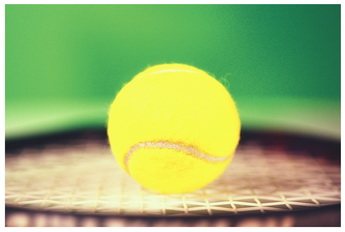The Responsibilities of a Coach

As a tennis instructor, my role is to give my students information and organizational structure to provide clarity and focus. The most serious players require more than a tennis instructor, however, they need a coach.
While coaches provide instruction, they assume other, more ambitious tasks as well. Tennis coaches are often second only to family members in time spent with students, and as a result, have a profound impact on the socialization and development of these young people. This is an enormous responsibility and should be treated as such.
In my role as a coach, I have come to recognize the following, as responsibilities of my job:
1. Learn how each student learns best
Some students are visual learners, since they emulate what they see. Other students are auditory learners who understand by listening. Some are kinesthetic learners, in that they need to perform a movement to understand it best. One of the first things a competent instructor or coach will do is make an assessment of the students’ learning style and adjust the message accordingly. A prerequisite to this undertaking is, of course, that you are adept at utilizing each style as a teacher.
2. Find out the values and outlook of students and parents and reinforce them
It is not the job of the coach to impose their personal values on young students. Rather, coaches should reinforce the values of the players’ parents to students. If a parents’ values conflict with the core beliefs of the coach, conflict is inevitable. If the relationship between coaches and parents are not philosophically harmonious, it will not work in the long term.
3. Put the needs of the student first
The experience of coaching is first and foremost about providing a secure, productive, healthy and motivating environment for players to learn, develop and grow. It is not about satisfying the coaches or parents’ needs. Andre Agassi talked about how he used Nick Bolleterri, and how he was exploited by him in a mutually beneficial arrangement. I don’t find their parting of the ways to be a demonstration of disloyalty, as I have heard it referred to, since the relationship was based on business expediency and not loyalty in the first place. In the adult business world, this objectification is fine, however, such relationships are dysfunctional at best when they involve children, who thrive with consistency, care and continuity.
4. Be a role model
It is important that as a coach, you emphasis the importance of hard work, perseverance attentiveness, determination health and fitness. The greatest impact however, is when you personally embody and repeatedly display these attributes. "Do as I say" is not as powerful a message as "Do as I do!"
5. Do not commercialize or exploit your students
Coaches make their living from coaching, and often, the best promotion for coaches are the successes of there students. Of course, if Roger Federer were ranked 100th in the world, his coach could brag about this achievement and some people, not realizing what Federer would have otherwise achieved, would be highly impressed. While it is natural for coaches to be proud of the achievements of their students, great caution must be taken to reinforce that players achieve by their own efforts. To do otherwise is to take power away from players and to fail to recognize that as coaches, and parents, we are nothing more than motivators and facilitators to the players’ success.
On a personal note, I believe that coaches should be neither seen nor heard at tournaments. I find it disingenuous that some coaches pretend to go to simply watch, learn and morally support at tournaments when their covert agenda is to recruit new students and subvert what should be an experience that is just about the players into their own.
6. Be a team player
A coach is one part of a successful player’s team. Players may want to win every match and there is no denying the great value to learning the process of match success, which is about having the ability to make those compromises and compensations necessary to get the job done. It is therefore up to the coach to provide a long-term view that balances a players’ desire for immediate gains with the outlook of safe and ultimate development.
7. Be a mentor first and then a friend
While positive long-term coaching relationships necessitate mutual respect, trust and interest in the well-being of the other, they exist in an environment of unequal power. Coaches need to be leaders and mentors of students, first and foremost.
8. Focus on the means to success rather than the ends
As a coach, I try to discipline myself to focus on the manner in which the players I coach compete. As a person, I cannot help but root for them to win. I reconcile this conflict by reminding myself of rule number three, put the needs of the students first. Players can control how well they prepare for a match. They can control how they conduct themselves. They cannot always control outcomes. In my desire to demonstrate professionalism, I try to emphasize those areas that can be managed, and I trust that by doing so, the best outcomes will take care of themselves.
9. Be a student of coaching
Every year or so, I reflect on how I have changed as a coach. I ask myself, do I emphasize the same areas of skill development in the same way? Have I learned and evolved as a professional? If I answer “yes,” then I try to balance my confidence and omniscience as a coach, with the humility of knowing that I can always improve.
10. Stay relevant
Each time a player competes, they are making themselves subject to a definitive moment of success or failure and the judgments that ensue as a result. Can we judge performance fairly and accurately as coaches if we put ourselves above such judgments? We call improvement a process, but we do remember what it is like to be a participant in that process, or do we find it easier and safer to sit back and just pass judgments on our students? Coaching requires empathy since it is a shared experience. As coaches, to be relevant, we must be athletes as well as educators.






